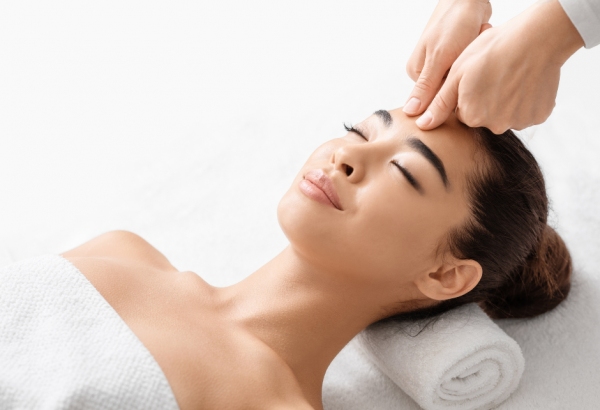Acupressure
What is Acupressure?

How Acupressure Works:
Benefits of Acupressure:
- Pain Relief: Acupressure can alleviate various types of pain, including headaches, back pain, menstrual cramps, and muscle soreness. Activating potent Acupressure points stimulates the body’s healing energy. The release of this healing energy, combined with deep breathing, affects the body’s biochemistry and helps relieve pain naturally.[1]
- Stress and Anxiety: Acupressure techniques can induce relaxation, reduce stress, and alleviate symptoms of anxiety and tension. Some research has shown that acupressure is effective at relieving stress. Studies have shown that acupressure has a calming effect, compared to other treatments. Specific acupoints help to relieve stress, while other acupoints may improve overall health and well-being.[2, 3]
- Digestive Disorders: Acupressure may help improve digestion and relieve symptoms associated with digestive disorders such as indigestion, bloating, and nausea. Acupressure has thousands of years of use for a variety of health conditions, including gas, bloating, and other digestive issues. There are almost 30 points on the body that can help improve digestion, reduce abdominal pain, and more.[4]
- Insomnia: Acupressure points targeted for promoting relaxation and sleep can help alleviate insomnia and improve sleep quality. Insomnia is a fairly common sleep disorder that makes it difficult to fall asleep and stay asleep. Insomnia keeps many people from getting the 7-9 hours of sleep experts recommend. Acupressure involves the use of physical touch to stimulate pressure points that correspond to different aspects of physical and mental health. The effect of acupressure is to quickly relax muscles and reduce pressure on the nervous system, clear the meridians, help regulate and enhance visceral function, and aid digestion.[5]
- Fatigue: By stimulating specific acupressure points, energy levels can be boosted, and feelings of fatigue and lethargy can be reduced. Evidence supports the positive results of acupressure for cancer-related fatigue.[6]
- Nausea and Vomiting: Acupressure wristbands and specific acupressure points can help alleviate nausea and vomiting, particularly in conditions like motion sickness and morning sickness during pregnancy.[7]
- Menstrual Disorders: Acupressure can help regulate menstrual cycles, reduce menstrual pain, and alleviate symptoms of premenstrual syndrome (PMS). Acupressure at the Sanyinjiao (SP6) point and DiJi (SP8) point can reduce pain severity of dysmenorrhea for up to 2 hours after application, and these points may be used to alleviate the severity of systemic symptoms accompanying dysmenorrhea.[8]
- Respiratory Issues: Acupressure techniques may help relieve symptoms of respiratory conditions such as asthma, allergies, sinus congestion, and common cold symptoms.
- Mental Health: Acupressure can complement mental health treatment by reducing symptoms of depression, improving mood, and promoting emotional well-being.
- Immune Support: Stimulating certain acupressure points may help enhance immune function and support the body’s natural defense mechanisms against infections and illnesses.
Why Choose Happipuncture:
References

